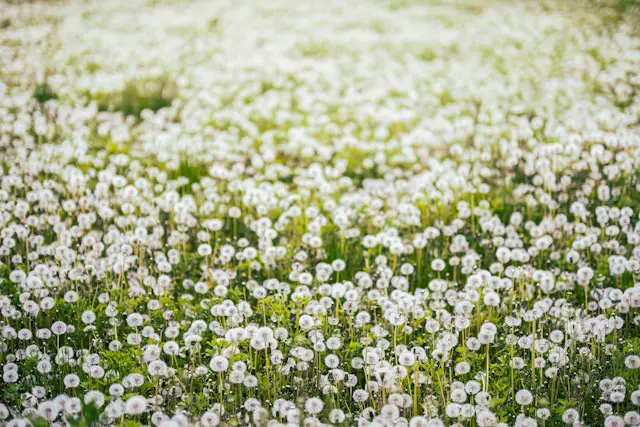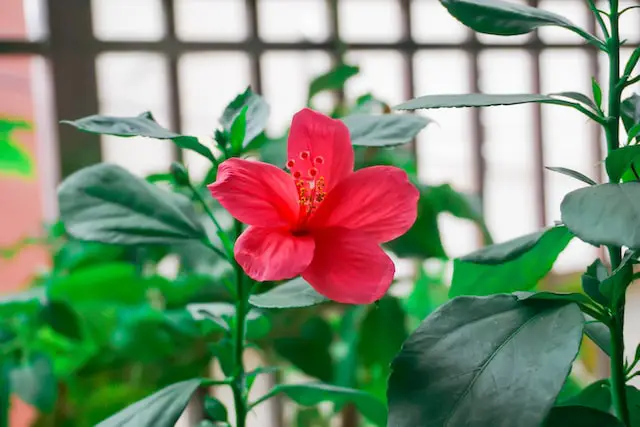
Dandelions are hardy plants that can thrive in various conditions, but they still benefit from proper fertilization. Fertilizing dandelion plants can help promote lush foliage, vibrant blooms, and overall plant health. In this tutorial, we will guide you on how and when to fertilize your dandelion plants to ensure they reach their full potential.
Understanding Dandelion Fertilization
Before we dive into the specifics of fertilizing dandelion plants, it’s important to understand the basics of fertilization. Fertilizers provide essential nutrients that plants need for growth, such as nitrogen (N), phosphorus (P), and potassium (K). These nutrients support various plant functions, including root development, leaf growth, and flower production.
When to Fertilize Dandelion Plants
Timing is crucial when it comes to fertilizing dandelion plants. The best time to fertilize is in early spring, just as the plants start to emerge from dormancy. Applying fertilizer at this time provides a nutrient boost to support the plant’s growth throughout the growing season.
Avoid fertilizing dandelions during the summer months, as excessive nitrogen can lead to lush foliage growth but fewer blooms. Dandelions naturally slow down their growth during the summer, so fertilizing during this period is unnecessary and may even harm the plant.
Choosing the Right Fertilizer
When selecting a fertilizer for your dandelion plants, opt for a balanced fertilizer with equal or near-equal amounts of nitrogen (N), phosphorus (P), and potassium (K). Look for a fertilizer with an NPK ratio of 10-10-10 or 14-14-14. This balanced blend ensures that your dandelions receive all the necessary nutrients in the right proportions.
Alternatively, you can use an organic fertilizer, such as compost or well-rotted manure. Organic fertilizers provide a slow-release of nutrients and improve soil health over time.
Applying Fertilizer to Dandelion Plants
To fertilize your dandelion plants, follow these simple steps:
- Start by watering the soil around the dandelion plants thoroughly. Moist soil helps the fertilizer penetrate the root zone effectively.
- Measure the recommended amount of fertilizer according to the package instructions. Avoid over-fertilizing, as it can burn the plants.
- Spread the fertilizer evenly around the base of the dandelion plants, keeping it at least 6 inches away from the stems.
- Gently work the fertilizer into the top layer of soil using a garden fork or rake.
- Water the area again to help the fertilizer dissolve and reach the plant’s roots.
Additional Tips for Fertilizing Dandelion Plants
Here are some additional tips to keep in mind when fertilizing dandelion plants:
- Avoid using weed and feed products on dandelions, as they may contain herbicides that can harm the plants.
- Regularly monitor the soil moisture levels and adjust watering accordingly. Dandelions prefer moist but well-drained soil.
- Consider performing a soil test to determine the specific nutrient needs of your dandelion plants. This can help you choose the right fertilizer and avoid over or under-fertilization.
- Apply a layer of organic mulch around the dandelion plants to help conserve moisture and suppress weed growth.
Frequently Asked Questions (FAQs)
1. Can I use a general-purpose fertilizer on my dandelion plants?
Yes, you can use a general-purpose fertilizer with a balanced NPK ratio on your dandelion plants. Look for a fertilizer with equal or near-equal amounts of nitrogen, phosphorus, and potassium.
2. How often should I fertilize my dandelion plants?
Fertilize your dandelion plants once a year in early spring. Avoid fertilizing during the summer months, as dandelions naturally slow down their growth during this period.
3. Can I use organic fertilizers on dandelion plants?
Yes, organic fertilizers such as compost or well-rotted manure are suitable for dandelion plants. They provide a slow-release of nutrients and improve soil health.
4. Should I water my dandelion plants after fertilizing?
Yes, watering the area after fertilizing helps dissolve the fertilizer and ensures it reaches the plant’s roots. Watering also helps prevent fertilizer burn.
Read more: Causes of Ants on Jasmine & How to Prevent & Get Rid of Them
Additional Information
Dandelions are not only beautiful but also have several benefits. They attract pollinators like bees and butterflies to your garden, and their leaves are edible and rich in vitamins A and C. However, if you wish to control their spread, it’s important to remove the flowers before they turn into fluffy seed heads.
Remember to follow the instructions on the fertilizer packaging and wear gloves when handling fertilizers. Always store fertilizers in a cool, dry place away from children and pets.
By following the proper fertilization techniques and caring for your dandelion plants, you can enjoy their beauty and benefits in your garden for years to come.
Conclusion
Fertilizing dandelion plants at the right time and with the appropriate fertilizer can significantly enhance their growth and overall health. Remember to fertilize in early spring, choose a balanced fertilizer, and apply it correctly to ensure optimal results. By following these guidelines, additional tips, and understanding the benefits of dandelions, you’ll be well on your way to enjoying vibrant and thriving dandelion plants in your garden.




